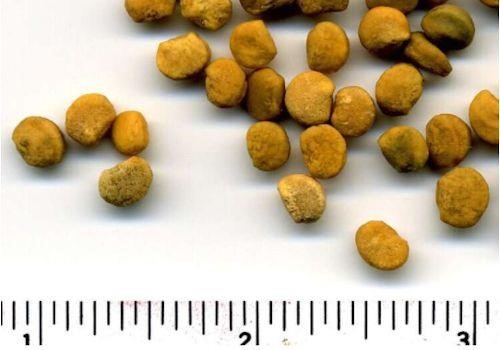By Jeff Mulhollem
There is good and bad news about ginseng collection and production in Pennsylvania, and likely much of Appalachia, according to a new study conducted by Penn State researchers.
On the positive side, it seems that many collectors of the endangered forest herb valued for its medicinal qualities are planting seeds in forests, conserving and supplementing remaining truly wild populations. But on the negative side of the ledger, often they are planting seeds acquired in online purchases from places such as Wisconsin, produced in shaded field operations with inputs of fertilizer. That germplasm threatens to weaken the gene pool of the plant, which is well adapted to thrive in Appalachian forests.
Forest farming of ginseng is growing, and this study was designed to examine trends in the growth of the secretive ginseng industry in Pennsylvania and how best to support and track ginseng forest farming, noted Eric Burkhart, associate teaching professor of ecosystem science and management in the College of Agricultural Sciences, who led the research.
Researchers sought to determine how many people are planting ginseng—and whether what people sell as "wild" is really wild, he added. The goal of the research was to more accurately inform efforts to conserve and promote forest farming of the species.
"With Pennsylvania exporting around 1,000 pounds of dried ginseng roots in most years during the past decade, we're trying to better understand where it all is coming from, since most forestlands in Pennsylvania are privately owned, and harvesting from public lands is not permissible," said Burkhart, who also is program director of Appalachian botany and ethnobotany at Penn State's Shaver's Creek Environmental Center.

Forest farmers in Pennsylvania often plant seeds acquired in online purchases from places outside the state. That germplasm threatens to weaken the gene pool of the plant, which is well adapted to thrive in Appalachian forests.
To reach their conclusions, the researchers used a confidential, annual survey sent to ginseng sellers over eight years in Pennsylvania to examine the extent to which forest farming and planting of commercially acquired seeds may contribute to wild ginseng harvest amounts.
In findings recently published in Economic Botany, the researchers reported that nearly three in ten ginseng root sellers revealed that some of the ginseng they sold as "wild" was produced using forest farming production methods involving scattering seeds in the forest. Better than one in four of planters indicated they used commercially available planting stock in these efforts, the researchers found.
Click here to see more...